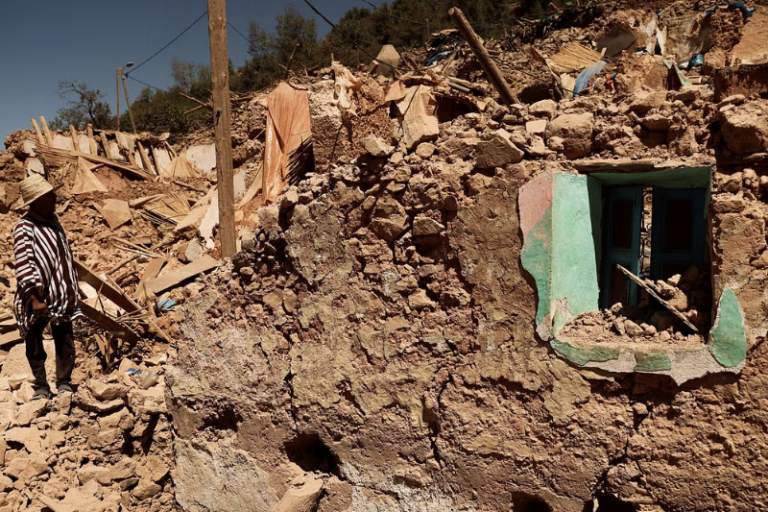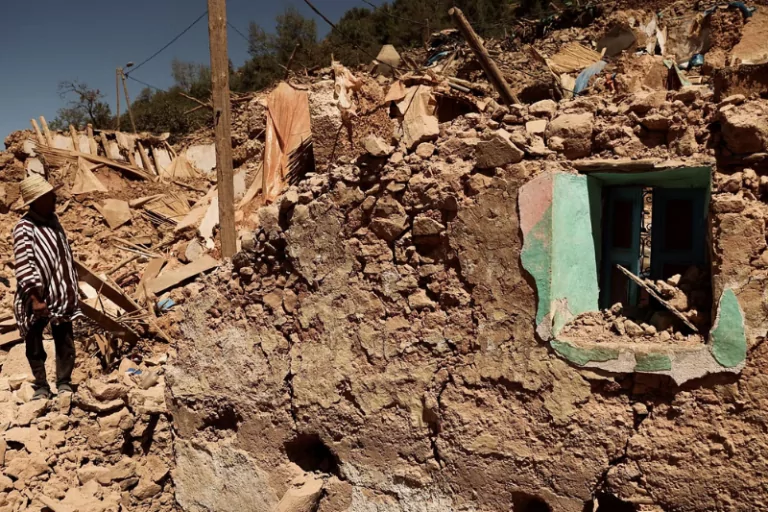

imf and world bank to decide on marrakech annual meetings following the earthquake
The World Bank and the International Monetary Fund (IMF) will decide on Monday whether to proceed with their annual meetings that were originally planned to take place in earthquake-ravaged Morocco, according to information revealed by IMF Managing Director Kristalina Georgieva in an exclusive interview with Reuters. Following a thorough evaluation of Morocco’s suitability to host the meetings in the wake of the tragic 6.8-magnitude earthquake that struck the High Atlas Mountains and left over 2,900 people dead, this decision was made.
The yearly meetings are scheduled to take place in Marrakech, a well-liked tourist destination in Morocco, which is 45 miles (72 km) from the epicenter of the earthquake. While there was significant damage to Marrakech’s ancient Medina neighborhood, Moroccan officials have made it clear that they strongly want the IMF and World Bank to move forward with the events, which are anticipated to attract 10,000–15,000 attendees.
In spite of difficult conditions, Georgieva underlined Morocco’s steadfast commitment to hosting the conference. She expressed awareness of the IMF and World Bank’s worries about not burdening the nation throughout its recovery efforts in talks with Moroccan Prime Minister Aziz Akhannouch. On the other hand, the prime minister emphasized that moving the meetings could have a negative effect on Morocco’s hospitality industry, calling it “quite devastating.”
Should the meetings take place in Marrakech, Georgieva stated that she would be open to looking into measures to make them more efficient, such as shortening their duration and limiting the number of attendees, to make accommodations for the circumstances.
A noteworthy breakthrough during these discussions is the agreement reached at the staff level between the IMF and Morocco to extend a $1.3 billion loan from the Fund’s new Resilience and Sustainability Trust (RST). The objective of this loan is to strengthen Morocco’s overall financial capacity and increase the country’s resilience to climate-related calamities, such as droughts. It is expected that the IMF Executive Board will approve this loan before the annual meetings begin in two weeks.
Despite having nothing to do with the earthquake catastrophe, this financing is part of Morocco’s larger initiatives to strengthen its economy and get ready for climatic shocks. In April, the IMF approved a $5 billion flexible credit line for Morocco, which aims to strengthen the nation’s crisis prevention capacities.
Georgieva assured attendees that participant security was not a major concern and that the choice to move forward with the yearly meetings would be dependent on a number of variables, including the venue’s physical capacity and logistical viability.
South African President Cyril Ramaphosa defended his nation against claims of white discrimination made by tech magnate Elon Musk. After…
Hilton launched Signia by Hilton for its first appearance in Egypt and Africa through its hotel expansions. These hotels at…
UNICEF reported that, nearly 2900 people died of cholera across Eastern and Southern African countries while children suffer most greatly…
Enza, based in the United Arab Emirates, obtained $6.75 million in initial investment funding from Algebra Ventures and Quona Capital.…
US Secretary of State Marco Rubio ordered South African Ambassador Ebrahim Rasool to leave America by March 21 because he…
Early 2025 ends with IPL fever in India and cricket fans receive good news of an international schedule full of…
This website uses cookies.